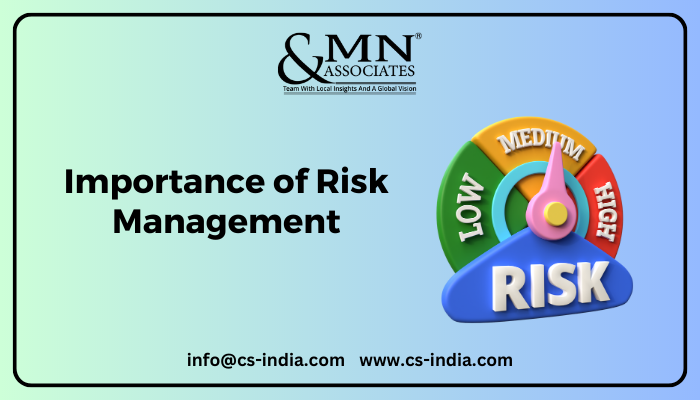The Relevance of Comprehending the Value of Risk Management in Numerous Industries

The Core Concept of Risk Management and Its Objective
Risk Management, the cornerstone of numerous industries, pivots on the identification, assessment, and mitigation of unpredictabilities in a company environment. By properly recognizing potential threats, companies can develop strategies to either avoid these risks from taking place or lessen their influence. As soon as risks have been identified and reviewed, the mitigation procedure involves designing techniques to lower their potential effect.
Advantages of Carrying Out Risk Management in Service Operations

Introducing the Function of Risk Management in Different Industries
While every industry confronts its distinct set of threats, the execution of Risk Management techniques continues to be a common measure in their pursuit of sustainability and development. In the healthcare industry, Risk Management involves ensuring individual safety and security and data protection, while in financing, it entails mitigating investment dangers and making certain regulatory compliance (importance of risk management). Building and construction companies focus on employee safety, job delays, and budget overruns. In the innovation sector, firms alleviate cybersecurity hazards and modern technology obsolescence. Ultimately, the function of Risk Management throughout markets is to determine, analyze, and reduce risks. It is a necessary component of tactical planning, allowing companies to safeguard their possessions, make best use of chances, and attain their goals.
Real-life Study Showing Effective Risk Management
To comprehend the importance of Risk Management in these many markets, one can look to a number of real-life instances that illustrate the effective application of these measures. Toyota, post the 2011 earthquake in Japan, changed its supply chain Management to decrease interruption threats. These situations demonstrate just how sectors, learning from crises, successfully used discover this Risk Management approaches to lower future threats.
Future Trends and Developments in Risk Management Strategies
As the world continues to develop, so as well do the patterns and advancements in Risk Management techniques. Fast advancements in innovation and information analytics are reshaping the Risk landscape. Big data and AI are now instrumental in predicting and minimizing threats. Organizations are leveraging these devices to construct anticipating versions and make data-driven choices. Cybersecurity, as soon as a peripheral worry, has actually catapulted to the forefront of Risk Management, with strategies concentrating on avoidance, discovery, and response. The combination of ESG (Environmental, Social, Administration) factors into Risk i thought about this Management is another growing trend, showing the enhancing recognition of the duty that ecological and social threats play in business sustainability. Thus, the future of Risk Management depends on the combination of sophisticated innovation, cutting-edge techniques, and an all natural approach.
Conclusion
In final thought, understanding the relevance of Risk Management across a spectrum of sectors is crucial for their durability and prosperity. Eventually, successful Risk Management adds to more durable and lasting companies, highlighting the relevance of this technique in today's vibrant and extremely affordable service atmosphere.
While every industry challenges its unique set of threats, the execution of Risk Management approaches continues to be a common denominator in their quest of sustainability and development. In the medical care industry, Risk Management entails useful link making certain client security and information security, while in financing, it includes mitigating financial investment risks and guaranteeing regulative compliance. Ultimately, the role of Risk Management throughout industries is to determine, evaluate, and alleviate threats. These instances show just how industries, finding out from crises, properly used Risk Management strategies to reduce future dangers.

Comments on “The Essential Importance of Risk Management in Financial Decision Making”